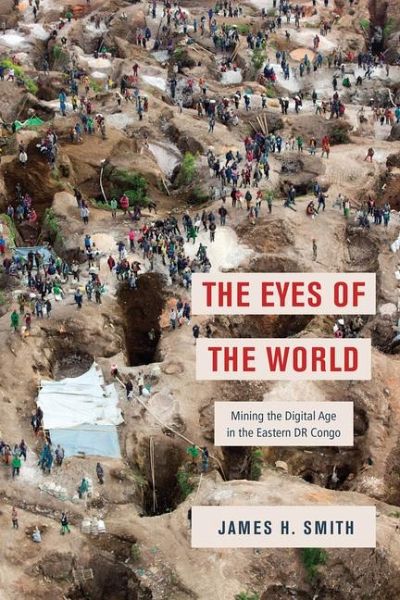
The Eyes of the World
Mining the Digital Age in the Eastern Dr Congo

PAYBACK Punkte
21 °P sammeln!
"The rise of the Information Age and of a data-driven economy may well be what distinguish the current era. We are able to enjoy the digital devices that define our times not only because of Silicon Valley innovations but also because of a burgeoning trade in dense substances like coltan, tin, tungsten, and tantalum, which can hold high electrical charges. As anthropologist James H. Smith argues, these minerals-what Congolese call the "black minerals"-are also incredibly socially dense: they bring into being vast divisions of labor, from hole owners, work managers, and diggers to porters and m...
"The rise of the Information Age and of a data-driven economy may well be what distinguish the current era. We are able to enjoy the digital devices that define our times not only because of Silicon Valley innovations but also because of a burgeoning trade in dense substances like coltan, tin, tungsten, and tantalum, which can hold high electrical charges. As anthropologist James H. Smith argues, these minerals-what Congolese call the "black minerals"-are also incredibly socially dense: they bring into being vast divisions of labor, from hole owners, work managers, and diggers to porters and middlemen, alongside all sorts of ancillary businesses, from tool makers and food vendors to creditors. In The Eyes of the World, Smith disassembles the devices in our pockets, tracing their provenance through the Global North and to the Congo, which has suffered through many iterations of the so-called resource curse. While acknowledging the role that mineral extraction has played in fueling the Congolese wars of the past several decades, Smith ultimately shows how mining can be more or less peaceful, inclusive, and stabilizing-depending on how it is accomplished. While global watch groups tend to espouse Western-style bureaucratic methods that center transparency, the modes of collaboration that best support the peace and productivity of small-scale artisanal mining are, Smith shows, much more complicated. Stakeholders in these markets engage different temporalities and socialities-often encompassing networks that include ancestors and forests-as well as different understandings of peace, the state, and well-being"--













